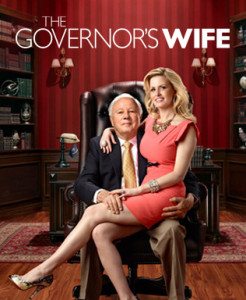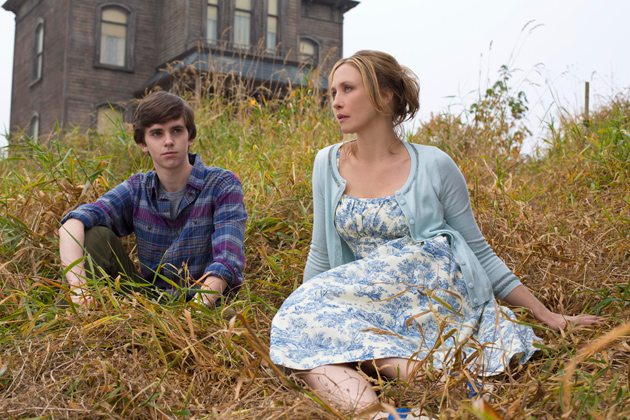
The Governor’s Wife: Sunday at 10 Eastern on A&E
I spend a lot (probably too much) time discussing the notion that many reality TV shows often feel over-scripted, and much of that is the result of many cable reality shows looking to scripted TV as a source of inspiration: The Real Housewives cashed in on the unexpected success of Desperate Housewives, for example. However, there are many times where the borrowing from scripted series’ instead comes in a much subtler form– often by working off of classic tropes or cliches that often fuel a wave of similar shows (such as the dysfunctional family comedies that ruled the roost in the 90’s, or the failed man-pocalypse that led to a number of failed comedies two years ago).
The Governor’s Wife takes the dysfunctional family trope to the extreme. In this, our patriarch and rock of the family is 85 year-old former governor of Louisiana Edwin Edwards (who served a little over 8 years in prison for charges related to political corruption). While in prison, he met his current wife, Trina, a 35 year old blonde bombshell. If the difference in age of our central couple seems wide, it’s even further exaggerated when you meet their respective children as Edwin’s two daughters are in their sixties while Trina’s kids are high school aged. Toss in accusations of gold digging, the desire for another child and the Southern society they are a part of and you have a recipe for some drama.
This show feels painfully scripted (with some very bad line reading during the voice-overs to go with it). While it’s pretty clear that this is the current state of affairs in reality TV, almost everything about The Governor’s Wife seems to be deprived of even the spontaneity that typically comes from one’s reaction to a situation. Trina is particularly plastic in this regard, awkwardly breaking out into tears at the notion of her 85 year old husband eventually dying (one would assume either no tears, or the tears occurring at the initial thought, not saying it with a straight face and then breaking a sentence later).
Unfortunately, the producers’ heavy hand on the show doesn’t actually help the show flow better. There is an overabundance of cut-away shots and voice-overs that almost come off as if you were watching a director’s commentary of a reality show instead of the show itself. Much of this issue derives from a sick obsession with pushing it’s one liners on the audience, as many exchanges on the show follow a flow where the cutaways and voice work is there to either sell or deliver a tepid punch line.
While the show is clearly built to be viewed through Trina’s lens, the generally myopic focus on her makes for an incredibly boring show. Aside from not being the most eloquent person, the truth is Trina’s presence in every storyline often reduces everyone else to a one note caricature. Nowhere is this worse than with Edwin’s younger daughter Victoria, whom with a pale face and strikingly dark makeup resembles the witch that the show makes her out to be (her main argument against Edwin and Trina having a baby involves her inheritance and a seemingly irrational hatred of Trina that’s never explained).
The Final Verdict: I’ve reviewed shows that have made me feel more viscerally bad than The Governor’s Wife. However, the show instead grinds at you with a different sort of badness that comes with being a monotonously boring affair built around the notion that people want a glimpse into the low-conflict life of a minor celebrity’s spouse. Skip this one, you’ll do better by watching basically any other reality show about rich people running around being rich.





